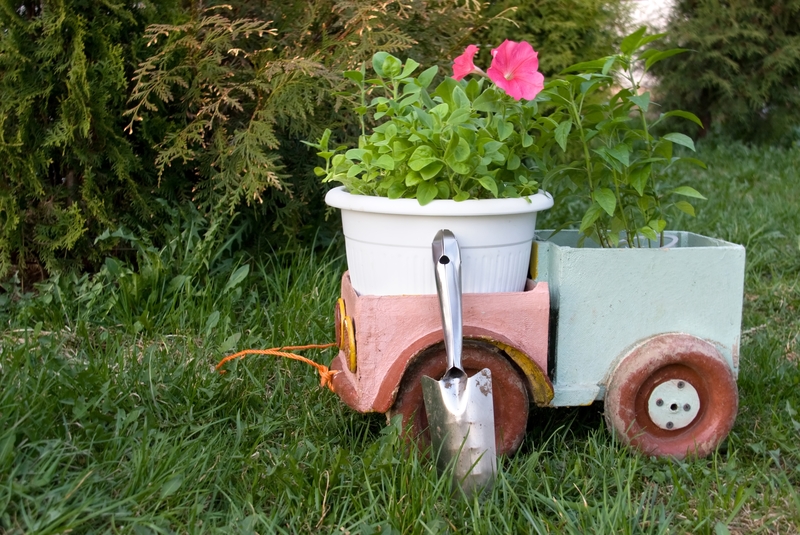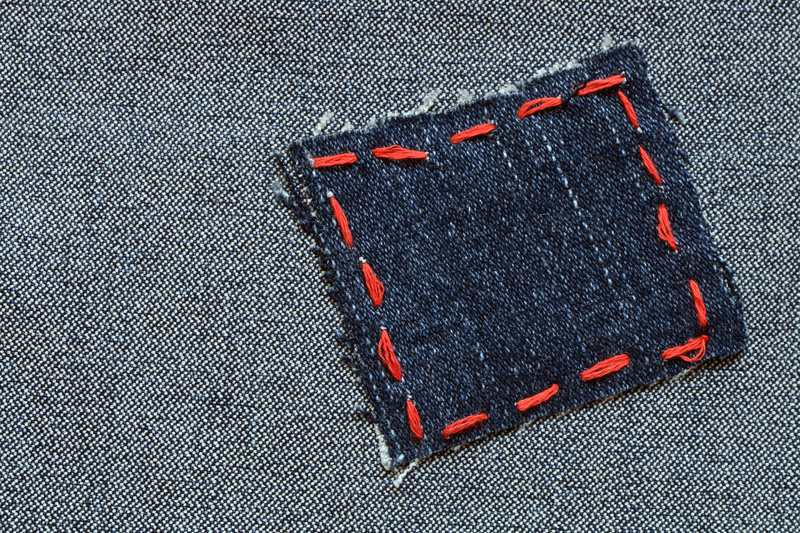Bulky Waste Items: Strategies for Affordable Disposal
Dealing with bulky waste items can be a hassle for households and businesses alike. Whether it's the old couch that no longer fits your decor, a broken refrigerator, or that mass of garden debris piling up, disposing of these large objects often presents unique challenges. How can you get rid of oversized rubbish items without emptying your wallet? This comprehensive, SEO-optimized guide will explore effective and affordable methods for proper bulky waste disposal--helping readers minimize cost, environmental impact, and stress.

What Are Bulky Waste Items?
First, let's define what counts as bulky waste. Generally, the term refers to items too large or heavy for standard refuse collection by your local council or waste provider. Common examples include:
- Sofas, armchairs, mattresses, and beds
- White goods: refrigerators, washing machines, stoves
- Large electrical appliances and electronics
- Old carpets and rugs
- Garden furniture and outdoor play equipment
- Building debris and renovation offcuts
Dealing with these items often means special arrangements for pickup or disposal. Knowing all the affordable avenues available is crucial for anyone looking to clear out undesired possessions.
Why Proper Bulky Waste Disposal Matters
Improperly discarding large waste objects can lead to several negative outcomes:
- Environmental pollution and increased landfill pressure
- Potential legal issues or fines for illegal dumping
- Loss of potentially reusable materials
- Safety hazards if items are left on the roadside
By using affordable and responsible bulky waste disposal strategies, you help conserve resources, reduce your environmental footprint, and keep your community clean.
Strategies for Affordable Bulky Waste Disposal
1. Reuse and Repurpose
Before tossing out your bulky waste, consider if it can be reused or repurposed. Many large items, especially furniture, can be given new life with a bit of DIY effort or creativity. Not only is this environmentally friendly, but it's also free!
- Upcycling Projects: Turn old pallets into garden furniture, or repurpose a worn wardrobe into a storage bench.
- Repair: Sometimes, a simple fix is all it takes to restore functionality.
- Community Sharing: Use local social media groups or neighborhood forums to offer items to others for free. One person's trash may be another's treasure!
Quick tip: Double-check if there are local repair cafes or upcycling workshops in your area--they might assist in fixing or repurposing items at minimal cost.
2. Donate to Charities and Non-Profits
Many organizations accept gently used furniture and appliances. Some even offer free collection services! This is an excellent way to save on fees and help those in need.
- Contact local shelters and charity shops: They might need furniture, beds, kitchen appliances, or electronics that are still in working order.
- Online platforms: Websites and apps like Freecycle, Facebook Marketplace, and OfferUp make it easy to give things away to those willing to pick them up.
3. Municipal Bulk Waste Collections
Most cities offer curbside bulky item pickup for residents, often at a low cost or even free a set number of times annually. Check your city or local authority's website for details on:
- Scheduled bulky waste collection dates
- Accepted items and limitations (weight/size restrictions)
- Booking arrangements and any associated fees
*If your city doesn't provide this service, shared bulk pickup with neighbors can sometimes lower individual costs with private haulers.
4. Take Items to Recycling Centers
Many local household waste recycling centers (HWRCs) accept large objects. Dropping items off yourself is often free for residents, making this option highly affordable.
- Recycling centers separate and process materials such as wood, metal, or electronics for proper recycling.
- Some centers may require proof of address or residency--bring identification.
- For particularly heavy items, enlist help or use a rental trailer.
Recycling bulky items reduces landfill waste and allows materials to be reused in new products, contributing to a more circular economy.
5. Hire a Bulky Waste Removal Service
If you need fast, convenient bulk waste removal and can't transport items yourself, hiring a private company may be the solution. Comparison shopping is key to keeping this affordable:
- Request quotes from multiple providers; prices can vary widely.
- Ask about weight and item limits--some offer flat rates while others charge by volume or type of item.
- Consider off-peak scheduling for potential discounts.
- Split costs with neighbors or building mates if you share a single collection service.
Look for services with sustainable disposal practices--ask if they recycle portions of the collected waste.
6. Rent a Skip or Dumpster
For substantial projects, renting a skip (dumpster) may be the most cost-effective bulky waste disposal method. Skips come in various sizes and are ideal for renovation debris, old furniture, or major cleanouts.
- Share skip rental with neighbors to divide the fee.
- Compare rental companies for the best rates and customer reviews.
- Be aware of what can and cannot be placed in skips (e.g., hazardous materials are usually not accepted).
Properly filling a skip avoids overage fees: break down larger items, and pack efficiently.
7. Specialized Recycling for Electronics & Appliances
Old appliances, TVs, and other white goods can often be recycled through special take-back programs or e-waste days hosted by local councils or retailers. This can be a low-cost or even free way to handle bulky electronics, which can be environmentally hazardous if sent to landfill.
- Retailer Take-Back: When purchasing a new appliance, ask if the retailer offers a removal service for your old item (sometimes included in the price).
- Designated E-Waste Drop-Offs: Many cities hold periodic collection events for electronics and electricals.
Never illegally dump old appliances--it can result in environmental harm and hefty fines.
8. Composting or Chipping for Garden Waste
Bulky garden waste such as branches, logs, or lawn furniture can often be composted, mulched, or chipped. Municipalities often provide organic waste collection bins for green waste, too.
- Rent or borrow a wood chipper for large branches and create mulch for your garden.
- Many recycling centers accept green waste free of charge.
- Composting items at home? Make sure materials are untreated and free from contaminants.
Money-Saving Tips for Bulky Waste Disposal
- Compare Options: Always get several quotes from removal companies and compare them with municipal or self-serve solutions.
- Plan Ahead: If you know you'll have large waste, coordinate disposal with your community's free pick-up days or neighborhood clean-ups.
- Disassemble Bulky Items: Breaking things down can reduce volume and may allow you to use standard trash or recycling collections.
- Watch for Hidden Fees: Some companies tack on extra costs for stairs, long carries, or specific materials--read the fine print.
- Maximize Each Trip: If you're visiting a recycling center, combine all your bulky waste to save on travel and time.
Environmental Considerations for Bulky Waste Disposal
Cheap disposal should not come at the expense of the environment. Many bulky waste items are made from materials--like metals, plastics, or electronics--that can be harmful if not disposed of properly. Where possible:
- Prioritize recycling and reuse over landfill disposal.
- Choose certified disposal companies that follow environmental guidelines.
- Educate yourself on local recycling regulations and prohibited materials for disposal.
A sustainable approach to bulky item removal not only saves money but also protects the planet.

Bulky Waste Disposal: Frequently Asked Questions (FAQs)
Can I leave bulky waste items on the curb?
Only in areas and dates specified by your local authority. Unauthorized curbside dumping may result in fines or citations--in many regions it's considered illegal dumping.
What items are prohibited from landfill disposal?
Items containing hazardous materials--such as lead-acid batteries, solvents, paints, and certain electronics--cannot go to landfill with general bulky waste. Always check your local government's prohibited items list.
What's the cheapest way to dispose of bulky items?
The least expensive methods usually involve do-it-yourself solutions:
- Donating, selling, or giving away items
- Dismantling and taking items to the municipal recycling center yourself
- Participating in community clean-up days
Can I recycle all types of bulky waste?
Most, but not all. Items made primarily of wood, metal, textiles, and some plastics are recyclable. Upholstered or composite items, or those with hazardous components, may require special handling.
Conclusion: The Smart Way to Clear Bulky Waste
Disposing of bulky waste items affordably requires a little research, creativity, and organization. By reusing, donating, recycling, or taking advantage of municipal programs, you can save money and conserve resources. Choosing a responsible and cost-effective approach to bulky item removal benefits both your budget and the environment.
Start planning your next bulky waste clearance today using the strategies outlined above. With the right preparation, affordable bulky waste disposal becomes a simple, stress-free process--keeping your space clean, your conscience clear, and your neighborhood free of clutter.
- Consider giving or selling items before tossing them--reuse is always cheapest!
- Utilize free local government services whenever possible.
- Always dispose of items legally and responsibly.
By following these tips, you'll save money, reduce waste, and help create a more sustainable community for everyone.